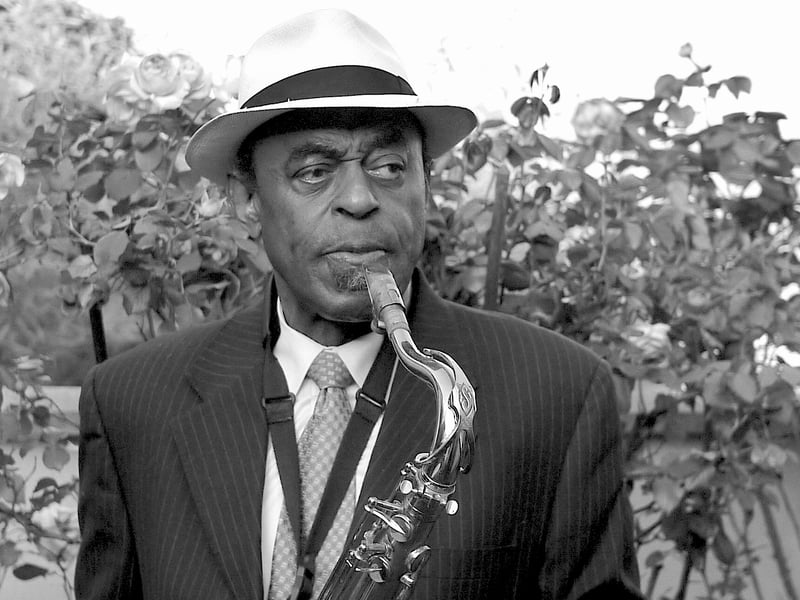Evento
FRIDAY, NOVEMBER 11, 2022
Archie Shepp 4tet
Archie Shepp saxophone
Marion Rampal voice
Pierre-François Blanchard piano
Michel Benita bass

In the debate regarding who may be the greatest jazz icon live, not always a fertile one, many names come to mind, according to the aesthetical affinities or the individual preferences of the different arguers: some will say Herbie Hancock, others Wayne Shorter, many will defend Anthony Braxton and others will certainly include Archie Shepp, a colossal saxophonist who is considered one of the precursors of free jazz, in this particular pantheon. Justifying the nomination, there is the admirable body of work of a talented and committed musician, composer, political activist and teacher, condensed in a long and impressive discography, alongside numerous historic names of jazz history such as Elvin Jones, McCoy Tyner, Ed Blackwell or Lester Bowie, among many others – a discography which is in itself the documental evidence of an artist who has always remained coherent to his principles and never lost the capacity to transcend musical idioms and inscribe poetically his own original voice in the contemporary time.
Born in Fort Lauderdale, Florida, in 1937, Archie Shepp grew up in Philadelphia, where he began his studies in piano, clarinet and saxophone. During his academic period, in which he pursued drama studies, Shepp began to form a political conscience that would recede in a life of civil-rights militancy and of irresolvable defence of the Afro-American legacy and influence in the society of the United States of America. It was also around that same timeframe that Shepp met and began to play with some of the most radically inventive musicians of that age, among them Lee Morgan and Jimmy Garrison, thereby definitely choosing to engage in a professional musical career. The 1960’s were the decisive stage of the saxophonist’s assertion as a prominent member of the avant-garde movement that would essentially change the way we create and listen to music. Shepp’s collaborations with seminal names of modern jazz, such as pianist Cecil Taylor, drummer Max Roach or the legendary saxophonists John Coltrane and Don Cherry (with whom he founded the band New Contemporary Five) were also decisive to establish Shepp’s reputation of an artist of revolutionary propensions and interested in evolutive disruptions in music, characteristic that he also channelled to his work as composer and leader. Throughout the many decades that followed that first stage of his career, his music transcended formal and spiritual frontiers, pursuing a progressively Afrocentric direction that is explicit in seminal albums such as “Fire Music” (1965), “The Magic of Ju-Ju” (1968) or “A Sea of Faces” (1975), and incorporating in its path an elegiac dimension of black culture in its multiple manifestations of spirituality and political awareness, from the blues to Malcolm X. Throughout his whole life, Shepp’s artistic work remained aesthetically multifaceted and expansive, and always reconciled at the same time with his political militancy and intellectual commitment as a teacher and musical theoretician.
In his return to Guimarães Jazz, Archie Shepp will present his new quartet, an unusual formation of saxophone, piano, bass and voice, without drums. The inclusion of voice is barely a novelty in Shepp’s repertoire, which numerous times included the reading of poetry, chant and political discourses in his music in order to sublimate it – as in the case of the magnificent “Blasé”, a masterpiece of pan-African jazz-blues haunted by Jeanne Lee’s voice. In this new project, the legendary saxophonist will be accompanied by vocalist Marion Rampal and two excellent French jazz musicians (Pierre-François Blanchard and Michel Benita) for a concert that will no doubt constitute one of the highlights of the 2022 edition of the festival.